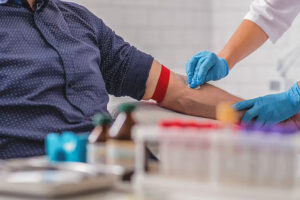The journey from adolescence to adulthood can be a challenging and tumultuous time for many young individuals, especially those who have faced the added complications of substance abuse. When teens complete rehabilitation programs, they often find themselves at a crossroads. The skills they’ve gained during their recovery must now be applied to navigate the complexities of everyday adult life. Supporting these young adults in their transition is crucial for their sustained success and well-being.
Understanding the Challenges
Teens emerging from rehab are not only grappling with the physical and mental effects of substance use but also with the reality of reintegrating into their social and familial structures. These challenges include:
1. Social Stigmas:
Many teens may feel marginalized due to the stigma associated with addiction. This can lead to feelings of isolation and anxiety when trying to connect with peers.
2. Life Skills Deficiency:
Depending on the severity of their struggles, many teens may have missed out on developing essential life skills such as time management, financial literacy, and effective communication.
3. Emotional Vulnerabilities:
The emotional toll of addiction and recovery can leave young individuals feeling vulnerable. They may struggle with self-esteem, trust issues, and emotional regulation.
4. Peer Pressure:
As they reenter social circles, the risk of falling back into old habits increases, especially if they are surrounded by peers who do not understand or support their recovery.
To overcome these hurdles, it is imperative to provide targeted support that empowers these young individuals to thrive.
Key Strategies for a Successful Transition
1. Establishing Strong Support Networks
Creating a robust support system is one of the most important steps for a teen transitioning from rehab. This network should include family, friends, therapists, and mentors. Open lines of communication can help adolescents share their feelings and experiences without fear of judgment. Engaging in family therapy can also strengthen familial bonds and ensure everyone is on the same page regarding the teen’s needs.
2. Life Skills Training
Equip teens with essential life skills that will aid them in their day-to-day responsibilities. Programs that focus on financial management, cooking, job readiness, and interpersonal communication can significantly boost confidence. Role-playing scenarios and hands-on activities can help reinforce these skills in a practical manner.
3. Continued Professional Guidance
Post-rehab counseling is critical for ongoing success. A trained professional can help adolescents tackle emotional challenges, provide coping strategies, and monitor progress. Group therapy sessions can offer camaraderie and facilitate discussions about shared experiences, making teens feel less alone in their recovery journey.
4. Encouraging Healthy Hobbies
Encouraging teens to explore new hobbies or revive old interests can be an excellent way to fill their time positively. Creative outlets like art, music, sports, and volunteering provide constructive distractions and can build a sense of achievement. These activities not only foster personal growth but also allow for the development of new social connections outside of previous peer groups.
5. Education and Career Development
As teens approach adulthood, focusing on their education and career aspirations becomes paramount. Counseling services can assist in exploring educational opportunities, vocational training, and potential job placements. Setting clear, achievable goals can create a roadmap for their future and instill a sense of purpose.
6. Cultivating Mindfulness and Coping Mechanisms
Mindfulness practices such as meditation, yoga, or journaling can greatly enhance emotional regulation and stress management. Teaching teens how to cope with triggers and cravings through healthy mechanisms is critical. Providing them with tools to manage anxiety or negative thoughts will empower them in their recovery journey.
7. Community Engagement
Involvement in community service or local organizations can enhance feelings of belonging and purpose. Such engagement gives teens the chance to give back and develop a positive identity outside of their past struggles. Building relationships within supportive communities can significantly reduce the risks of relapse.
Conclusion
Helping teens transition to adulthood after rehab requires a comprehensive approach that combines emotional support, skill development, and goal-setting. By fostering an environment where they feel understood and supported, we can help bridge the gap between recovery and a fulfilling adult life.
It’s imperative to recognize the immense potential within each young individual and guide them toward realizing a brighter future. With the right resources and support, teens can emerge from rehab more resilient and equipped for the challenges ahead.
For parents and guardians seeking additional guidance, resources like Hollywood Hills Recovery offer specialized programs focused on helping teens navigate these crucial transitions. By investing in their recovery and future, we can pave the way for their success and happiness.






















Add Comment